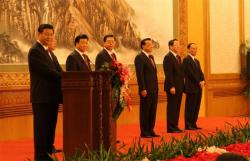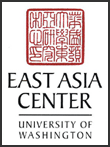China’s 18th Chinese Communist Party Congress and the Challenges of the 21st Century
Error message
- Deprecated function: Methods with the same name as their class will not be constructors in a future version of PHP; views_display has a deprecated constructor in require_once() (line 3157 of /nfs/aesop1/hw00/d62/eacnews/includes/bootstrap.inc).
- Deprecated function: Methods with the same name as their class will not be constructors in a future version of PHP; views_many_to_one_helper has a deprecated constructor in require_once() (line 113 of /nfs/aesop1/hw00/d62/eacnews/sites/all/modules/ctools/ctools.module).
- Deprecated function: The each() function is deprecated. This message will be suppressed on further calls in _menu_load_objects() (line 569 of /nfs/aesop1/hw00/d62/eacnews/includes/menu.inc).
- Deprecated function: implode(): Passing glue string after array is deprecated. Swap the parameters in drupal_get_feeds() (line 394 of /nfs/aesop1/hw00/d62/eacnews/includes/common.inc).

The 18th Chinese Communist Party (CCP) Congress, concluded in mid-November 2013, selected a new leadership that will guide China for the next 5 to 10 years. The announcement of that leadership raises many questions about whether the reigning CCP can surmount growing challenges. From multiple sources, intense pressures are being exerted, calling on the CCP to change, but the new leadership and the CCP in general is not likely to be fully up to meeting the challenges.
The new top leadership of seven men—the Politburo Standing Committee (PBSC)--with Xi Jinping [sounds like She Gin Ping (rhymes with ring)] (59) as the top individual leader, seems rooted in a politics of interests and patronage. Leadership in China in the last several decades has been largely collective and consensual—each one of these seven leaders may have a veto over controversial measures. A retired former leader appears to have played a decisive role in determining the composition of the PBSC. Many are linked to that former leader, and most are in their mid to late 1960s. They tend to have worked in provinces along China’s coast, and are associated with policies that have pushed Chinese exports, and high rates of investment, especially in real estate and infrastructure. And, as with all top ranking CCP members, they are committed to continued dominance by the CCP and are all nationalistic. There is little that is distinctive about what they have done to date as long-time Chinese politicians, and the default assumption is that the new leadership is unlikely to undertake major policy changes, or open up the political system to much more input from society, and the collective, consensual nature of decision-making reinforces this view. After all, China now has the second largest economy in the world, continues to grow rapidly, and is recognized by most other countries as the second most influential state in the world. The closed policy process has seemed to work, or so the CCP and the leadership might believe.
But while the current policies of the regime have brought many successes, they are coming at growing costs, stimulating a politics of passion. While the CCP and PBSC are likely to protect major interests in the system in decision-making behind closed doors, popular outrage and senses of injustice are growing. These powerful emotions may drive many in China to take steps that under normal circumstances are seen as rash. Local party leaders confiscate land and houses for little or no compensation; corruption among officials affects everything; inequality among have and have-nots is reaching extraordinary levels. Because the CCP blocks popular input in the political system, ordinary people have no recourse but to engage in protests and demonstrations. They know these activities are highly risky—these actions are often violently suppressed, some protestors have been killed, and demonstration leaders are sentenced to long prison terms. Yet, truly massive numbers of protests take place every year in China (and the number appears to be rapidly growing) because popular indignation has reached extraordinary levels. So far, the CCP has managed to contain these protests, but whether, or perhaps, for how long, that can continue is a huge unknown.
In contrast to the politics of interests and passions, there is also what might be called a politics of imperatives pressing in on the new leadership. Respected voices within and outside China are urgently calling on the leadership to address current unsustainable policies. They argue that China’s economic growth cannot be sustained any longer by relying on investment and exports—the key export markets are all experiencing slow growth, and in many areas China has already overbuilt housing and infrastructure. A shift to a more consumption oriented growth path (where Chinese consumers provide the impetus to economic growth) is essential. China’s environmental degradation is reaching extreme proportion, and profligate use of electricity generated by burning coal is creating horrendous air pollution and public health problems, and arguably China’s water quality is even worse. The CCP needs to also create mechanisms by which ordinary people can reflect their concerns to the government and not have them ignored. These and other imperatives all run up against the politics of interests and reflect, to a degree, some of the sources of the politics of passion.
These three kinds of politics will play themselves off against each other over the next five to ten years in China. If the leadership can successfully address popular outrage and various imperatives, it can ride out the coming storm. But if it cannot, dramatic developments lie ahead.
Current Edition
- Asian Law Center Celebrates Fifty Years of Global Leadership in Legal Education and Research
- Interview with UW President Michael Young
- North Korea in Transition
- China’s 18th Chinese Communist Party Congress and the Challenges of the 21st Century
- US-China Sustainable Development Four-Day Conference, October 2012
- Spaces of Possibility: Korea and Japan, In, Between and Beyond the Nation
- Events
- Recent FLAS Recipients
- Program Updates
- Recent Faculty Publications
- Retirements, New Faculty and Staff
- Study Abroad


